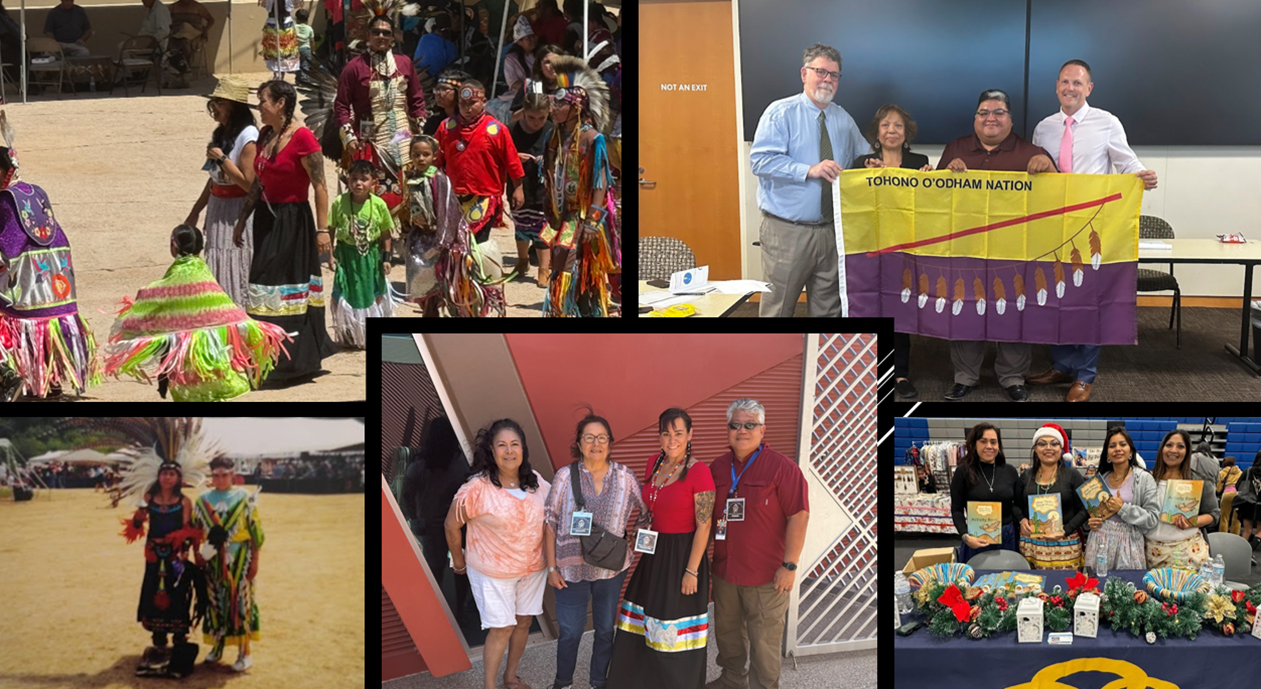
Tribal Relations and the “Gold Standard for Best Practices”
Wiqômun – Greetings, I am Brittany Aquitante or Morning Glory, a name blessed upon me by my Chief Mutáwi Mutáhash (Many Hearts)- Lynn Malerba. I am a federally recognized member of the Mohegan Tribe from Uncasville, Connecticut. In addition to being a mother of two and a wife, I am a passionate advocate for the Indian Child Welfare Act (ICWA).
Reflecting on my own childhood, I vividly recall the traumatic experience of being removed from my home in the dead of night. The sudden awakening, the hurried exit from the house, and the unsettling ride in the back of a car are etched in my memory. The chaos of the moment, with my siblings crying and shouting, left a lasting impact on me.
The protections afforded by ICWA, my siblings and I were protected from being adopted out to non-Native families. Instead, we were able to reunite with our mother after a year of separation. This personal journey has fueled my dedication to advocating for the rights of Native children and families, ensuring that they can stay connected to their cultural heritage and community as I was afforded.
The Establishment and Goals of Maricopa County ICWA Court.
Progress has been made in Maricopa County since the establishment of the ICWA Court in August 2022, with a primary focus on maintaining the highest standards of child welfare law. Maricopa County is striving to enhance its ICWA Court by fostering increased collaboration between the State court, Arizona tribes, and the Department of Child Safety. The ultimate objective is to enhance outcomes in ICWA dependency cases. Given the complexity of child welfare cases, effective collaboration between various governmental entities and systems is crucial to implementing improvements within the system.
The main goal of the ICWA Court is to enhance legal practice knowledge, cultivate collaborative partnerships, and improve data practices. With 22 federally recognized tribal nations in Arizona, Maricopa County ICWA Court is actively working towards establishing respectful relationships with all Arizona Tribes. By engaging in respectful collaboration, learning Tribal Practices, and sharing information, the court aims to provide the best possible support to Tribal Families through the navigation of their cases.
It is of utmost importance to prioritize the inclusion of local Arizona tribes in ICWA cases, as historically they have been marginalized and excluded from participating in governmental decisions concerning their children. By involving these tribes in the collaborative process, we can effectively identify and address any shortcomings in our current procedures. Furthermore, we aim to evaluate the entire process and utilize the gathered data to inform our practices and continuously enhance the quality of our services. We intend to disseminate the knowledge we acquire throughout the state and beyond to assist other jurisdictions in implementing systemic changes that will ultimately lead to improved outcomes for ICWA cases.
Tribal Partners and Collaboration
Maricopa County recognizes the importance of inclusivity and collaboration in supporting the Indian Child Welfare Act (ICWA). We understand the significance of giving each tribal Partner a voice and an opportunity to educate and share their knowledge with us. By working together, we can achieve more and provide the best possible outcomes for families involved in the child welfare system. Maricopa County ICWA court holds the utmost respect for every Tribal Nation and fully supports the ICWA Law. As the ICWA program Coordinator, I personally understand the value of cultural practices and the impact they have on shaping one’s identity. My own experiences as a Native American and the support I received from my Tribal Nation, along with the protections provided by ICWA Law, have played a significant role in shaping who I am today. Maricopa County continues to work on resources with support from a range of representatives such as Attorneys, Mercy Care, Family Involvement Center, Tribal Partners, and conciliators for the best outcome and long-term support for parents and placements. We continue to enhance our data practices to share insight into Case Flow, Case Management, and collaboration.
Maricopa County ICWA Court holds a Quarterly system partner meeting regularly to facilitate the exchange of updates and concerns, as well as promote collaboration on ICWA Practices. The latest meeting was highly successful in terms of information sharing, partner collaboration, and reviewing our data practices. At present, there are no ICWA Cases at Termination of rights in our ICWA Court. The Maricopa County ICWA court is dedicated to fostering shared respect, collaboration, and upholding ICWA principles.
Mission Statement:
“The ICWA Court in Maricopa County is committed to upholding the gold standard of child welfare practice by embracing the Indian Child Welfare Act (ICWA) through active, ongoing collaboration with tribal entities, community partners, and with Native families. This Court seeks to preserve and protect cultural identity and tribal connections while respecting tribal sovereignty.”